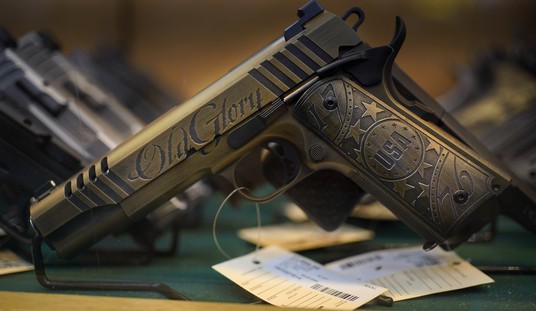If you’re a regular reader to Bearing Arms, you know that I’m a big supporter of Project Ceasefire, a program that works to dramatically reduce gang violence by targeting the most violent offenders with a two-pronged approach; a real offer to help them change their lives if they stop shooting, and a real promise that if they don’t, they’ll be going to prison for decades. The program has worked wonders in cities across the country beginning with Boston in the late 1990s, where juvenile homicide rates declined by more than 50% alongside the development of the program.
I’m a fan of the approach because it’s not just effective, it’s constitutional. It’s not about imposing blanket restrictions on the rights of legal gun owners in an attempt to target criminal behavior, it’s about targeting the most violent criminals in any given community. These are the guys known equally well by law enforcement and the residents of high-crime neighborhoods as a plague on their community. They’re in and out of jail and prison, with a hospital visit or two in between. Many of them will be dead by the time they’re 25. Many of them can be saved. Those that can’t can and should be locked away for as long as the law allows. No early release. No time-served slaps on the wrist. Twenty years in a federal prison means twenty years of your old neighborhood having to live with you trying to destroy it one life and one beef at a time.
The Indianapolis Star has a fantastic piece on the Operation Ceasefire model coming to the city. You should really read the entire thing, but there are a couple of paragraphs I want to highlight in particular. First, the call-in, where a dozen or so individuals on parole find themselves in an Indianapolis church, wondering why they’re even there, at least until the talking begins.
That’s where men like John Grice and women like [Delores] Fatherree come in.
The story of violence in Indianapolis is their story to tell. And when they spoke this month at one of the interventions, the 12 men in attendance fell into a hush.
They heard how Grice took a few bullets. How he shot a few himself. How the feds swept him into a drug conspiracy case.
“Everything y’all going through, I’ve been there,” Grice told the group. “The reason y’all here is because you’re on the radar. That’s the bad news.”
But someone must care about them, he said.
Because here’s their chance.
They also heard from Fatherree. The damage caused by growing gun violence has hit her about as hard as it’s hit anyone. She lost her son, 42-year-old Charles Reeves II, in May.
He was just a bystander walking to his car and looking through his cell phone late one night when the bullets hit, fired by a man who was aiming for someone else.
A community lost a good man. A 19-year-old girl lost her father. Fatherree lost her firstborn.
“We need our men. We need our men. We need you,” Fatherree told them. “Your whole generation is getting slaughtered.”
After hearing from Grice and Fatherlee, the young men hear from local non-profits about the help they can provide in turning their lives around; from job training, educational opportunities, to getting a job with a criminal record.
Then it’s time for the law to speak, in the form of Metropolitan Police Commander Michael Wolley.
At the front of the room stood a screen displaying a presentation. Soon Wolley paused as a slide revealed the names of every homicide victim killed this year.
Then came the next slide. There’s an Instagram post of someone trying to deal Percocets. A selfie of a man fanning a wad of cash. Photos of men pointing handguns toward the camera lens.
The slide lingers there for a moment as the men stared ahead, seeing their faces and their social media posts reflected on the screen.
Wolley’s tone changed, subtly.
“We know where you hang. We know your ‘hoods. We know your girlfriends. We know your side pieces,” Wolley told the men. “We want to help you if you let us.
“But we’ll stop you if you make us.”
The Indianapolis Star reports there’ve been three call-ins held to date, and while it’s still early, so far none of the men in attendance have been picked up for any parole violations or new charges. At some point that will change and then prosecutors are going to have to bring the hammer down on the offender, but when Operation Ceasefire and similar programs are successfully implemented, most of the gang members targeted with intervention choose to take advantage of the opportunity to change their life.
This is a much better approach for Indianapolis than Mayor Joe Hogsett’s support for new gun control laws. I hope the folks like Delores Fatherlee, John Grice and Commander Wolley can reach these young men. I hope a better life awaits them, that they decide to bury their old ways before they’re buried themselves. And I hope that those who don’t avail themselves of this gift and continue to inflict misery and murder in their own neighborhoods see the inside of a prison cell for decades to come.









Join the conversation as a VIP Member